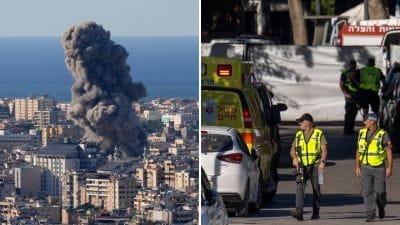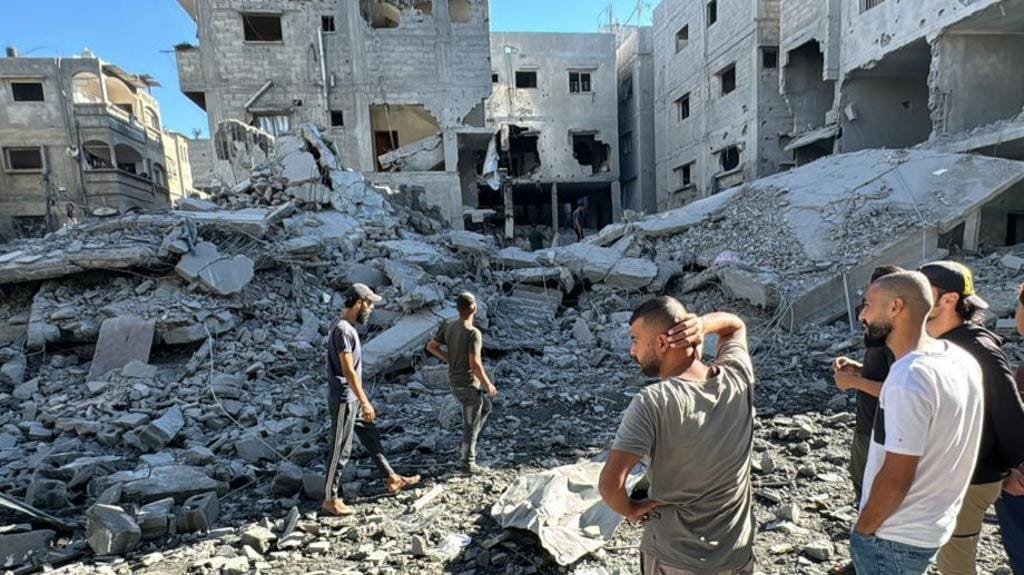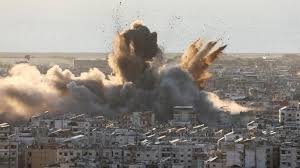The Highlights:
In intensified conflict, Israel escalated its air strikes on Beirut and Gaza with follow-up attacks after a drone attack from the Lebanon-based Hezbollah struck Prime Minister Benjamin Netanyahu‘s residence in northern Israel. Netanyahu said on October 19, 2024, “the heavy price” of the attack would be paid by Hezbollah after a drone hit a building near his home in Caesarea. Although Netanyahu and his family were not there at the time of the attack, it has prompted a stern reaction from the IDF, further entrenching tensions in the region.
Hezbollah’s Drone Attack and Netanyahu’s Response
The escalation of the conflict was due to a Hezbollah drone that reportedly evaded Israel’s air defense and struck a building in Netanyahu’s residential area. Even though no casualties were reported from this attack, Netanyahu denounced it as a “grave mistake” and threatened to retaliate sharply and severely. The airstrikes were implemented by Israel following the attack that targeted the strongholds of Hezbollah in southern Beirut. The target included the notorious densely populated Dahiyeh area housing offices of Hezbollah.

Netanyahu issued the stern warning in announcing that the wars of Israel’s military forces would not end until its enemies got a “heavy price” for their act. Besides attacking Beirut, the Israeli troops have widened their scope of operations within Gaza and targeted many points that have been assumed to be based of Hamas forces. Israeli jets bombarded numbers of targets in Gaza Strip, and unconfirmed reports indicate that so far over 50 casualties have resulted from the strikes that have taken place during the past day.
Gaza and Lebanon Increasing Violence
The conflict has up to today escalated between Israel and Hezbollah when it launched rocket and missile barrages into northern Israel in reprisal for Israeli air force airstrikes. Missile attacks on several Israeli cities, including Kiryat Ata, have been registered. Residents of Kiryat Ata ran to shelter as air raid sirens sounded. In response, Israel conducted more than ten airstrikes against Hezbollah targets, targeting its weapons storage facilities and command centers.

The situation in Gaza also worsened. Israeli forces expanded their airstrikes on strategic installations of Hamas, including hospitals and refugee camps. It was reported that both Al-Awda and Indonesian hospitals in northern Gaza were hit, medical personnel and patients injured. Palestinian health officials denounced those strikes as violations of international law, though the Israeli authorities claimed that those strikes targeted Hamas operatives and military assets.
Regional Repercussions and Global Reactions
The repercussions of the conflict are starting to be felt throughout the Middle East. The United Nations reported today that some 30,000 have fled Lebanon into Syria over the last 72 hours, as Israeli barrages continue to lay waste to Hezbollah-controlled territory. Diplomatic pressure builds against the two sides, as Israeli strikes in Lebanon enter their third day and fighting in Gaza reaches perilous heights. The leader of Hezbollah, Hassan Nasrallah, taunted Israel by promising more strikes, including the use of more drones and rockets aimed at Israel.
The latest incident was a drone attack on the home of Israeli Prime Minister Benjamin Netanyahu. This incident has added another level of tension to Israel’s already fragile relationship with Lebanon and other regional allies. It seems the tit-for-tat violence between Hezbollah, Iran-backed, and Israelis will not end anytime soon. While Hezbollah claimed openly supporting Palestinian resistance groups, Israelis seem still interested in dismantling their military structure in Lebanon.
Conclusion: No End in Sight
As the conflict remains constant, both parties dig in. “Netanyahu made it clear that Israel will not back down, further threatening that strikes on Gaza and Beirut will continue until Hezbollah and Hamas are seriously weakened,” said one analyst. Israeli prime minister has also emphasized that the Hamas would not liberate its hostages in the near future, until a peaceful understanding is reached between the two sides. The Palestinian leaders have so far declined this. International pressure to call off the war is on, but hope for peace seems remote, given that Israel continues its attack on multiple fronts.
For Latest News Updates Click Here
